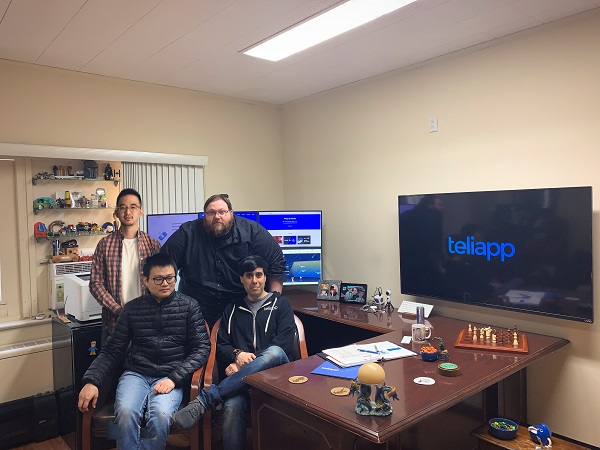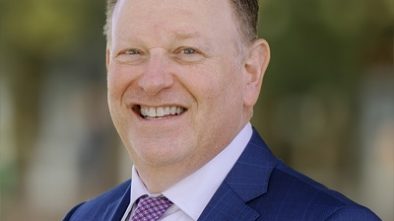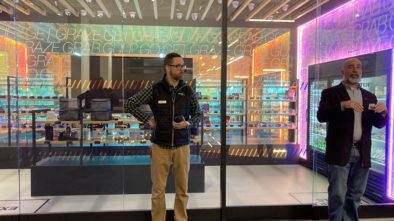Check Fraud No Match for the Draconis AI Engine, TeliApp’s Joshua Weiss Says
Most people in the financial industry understand that check fraud is a gigantic problem for banks. Even in this era of electronic payments, check fraud is a trillion dollar problem worldwide.
In particular, consumers are often being approached by a “Nigerian prince,” or some equivalent, and many fall for the scam. “It’s an incredible amount of money lost over the years, and the problem is not going away. The numbers are rising,” Joshua Weiss, founder and CEO of TeliApp (Linden), told us.
These scams work like this: Criminals profile you to see if you’re a likely candidate for the scam. Then they make you an offer. For example, someone just out of college might receive an offer of a job online, perhaps to be a remote executive assistant to an international businessperson. Posing as the employer, the scam artist offers him a $3,000/month salary.
When the “employee” receives the first check, however, it’s for $4,000. The fake employer then asks the employee to wire $1,000 back via Western Union. The check has already been deposited in the bank and is available for withdrawal, so the employee goes ahead and transfers the funds. The next day, the check bounces, and the scammed employee has overdrawn his account.
To combat this problem, TeliApp developed an artificial intelligence (AI)/deep machine learning solution called “Fraud Detect” that is fine-tuned to detect fraud before banks and consumers are caught irretrievably in the crosshairs of scammers. The solution significantly reduces this type of check fraud, and helps mitigate synthetic identity fraud and money laundering.
The AI engine “cannibalizes all of your data, understands your trends and behaviors, knows the things you spend money on and your deposit history,” so it can detect anomalies very quickly. Joshua Weiss of TeliApp
According to Weiss, Fraud Detect hooks into the company’s Draconis AI engine, and can eliminate virtually 100 percent of this problem. For people with bank accounts, the AI engine “cannibalizes all of your data, understands your trends and behaviors, knows the things you spend money on and your deposit history,” so it can detect anomalies very quickly. When it starts to see deposits that don’t make sense because they don’t jive with your normal behavior, it will flag them.
This doesn’t necessarily mean that there is fraud. Sometimes a person will make an unusual deposit because she has received a windfall, an inheritance or a refund. But the software also looks for certain numbers that are prevalent in Nigerian-prince type scams, such as $2,850 or $3,150.
TeliApp has developed interface modules for retail and commercial use, so banks can monitor accounts more efficiently, “and finally say goodbye to this rampant problem,” Weiss said.
“We are very close to a memorandum of understanding with our first bank. We have some strong relationships with larger banks, and have taken many, many meetings with risk-analysis, cyber-security and business-development officials,” Weiss stated.
TeliApp was challenged to develop a data set with nonpersonally identifiable information that could tell the banks which deposits weren’t real and which checks were fraudulent. “And, so far, it [the AI engine] has responded with near 100 percent accuracy.”
Side Projects Prove AI Engine’s Worth
Draconis has been under development for seven years, and Weiss said that targeting check fraud had always been the company’s intention. Along the way, TeliApp got caught up in a number of “side projects” using the AI engine that the team needed to implement to prove to themselves that their technology was state of the art.
One of the side projects that worked really well used AI to take data from social media platforms to help small businesses grow their social media following and convert it into sales. While the service initially thrived, TeliApp was dependent on third-party data from the social media platforms, and when Twitter and Instagram changed what they would allow companies to do with their data, the product stopped working so well.
“It was a good decision not to develop a business based on third-party data without having a contract with those providers.” Weiss said.
The way this product worked was that a small business would sign up, and the software did the rest. It would know which people to like and when to like their posts. A potential customer would get an email or a push notification that “Josh’s Pizza” liked their post. Many of these potential customers would look up Josh’s Pizza and then like or follow it.
“Draconis would monitor that information and develop personality profiles based on who the people were that actually had a positive reaction. We paid an equal amount of attention to those who didn’t follow, because we didn’t want to waste resources on people who don’t want to go to a pizza shop. Within weeks, all of the small businesses who started out with zero followers had thousands of organic, relevant followers from within five miles of the store’s location.”
One of the trends the engine detected was that people who went to a particular tanning salon often went to Menlo Park Mall to try on clothes three hours later. They were posting photos from the tanning salon and then posting photos trying on outfits. “One of our paying subscribers was a Main Street clothing store that competed with the stores in the mall. We thought, if we can just plant the breadcrumbs, maybe they would walk out of the tanning salon and into the clothing store nearby.” It worked beautifully until TeliApp was no longer able to like posts automatically.
The company has a small team working on Draconis and the Fraud Detect solution, Weiss said. Its top employees include Weiss; Ian Mathieson, CTO and senior software development engineer; and Ryan Su, user interface/user experience (UI/UX) and design director.
The rest of the company’s teams are dedicated to working on outside projects for customers, which are the bread and butter of TeliApp and have helped the company bootstrap. “We’ve taken very little in the way of outside investment” so far, Weiss said, adding that, with Fraud Detect working and on its feet, TeliApp wants to partner with the right investor so it can scale.
Draconis is Still Learning
Draconis is still learning. “We are hooking into a lot of databases and learning a lot. … There’s been a lot of R&D. If we had started developing the check fraud project without understanding what the AI engine was capable of, we would have had to redo everything as we progressed. Now we have the underlying technology and we can build products around it. The engine is vertical agnostic.”
“We’ve built a brain and we are taking it to school and teaching it about banks and financial fraud. However, depending on the vertical, there will be different types of business logic and different types of data it will need to do its thing.” Weiss alluded to a potential safety and security product for U.S. government agencies, but wouldn’t elaborate.
He noted that, when starting his business, he had been fortunate enough to meet the right people. “We are very friendly with a member of the New York Angels, Gregg Young, who has been an adviser from the beginning. I sent my earliest decks to him.”
They talked about a future AI engine and how it would prevent various forms of fraud. “We knew we would get there. But first we had to build the AI, research the vertical, make the connections, and build the products. In the meantime, we had to pay our bills and our salaries. And we had a lot of mini-adventures along the way. Now, I would say that we are finally ready to take off.”




